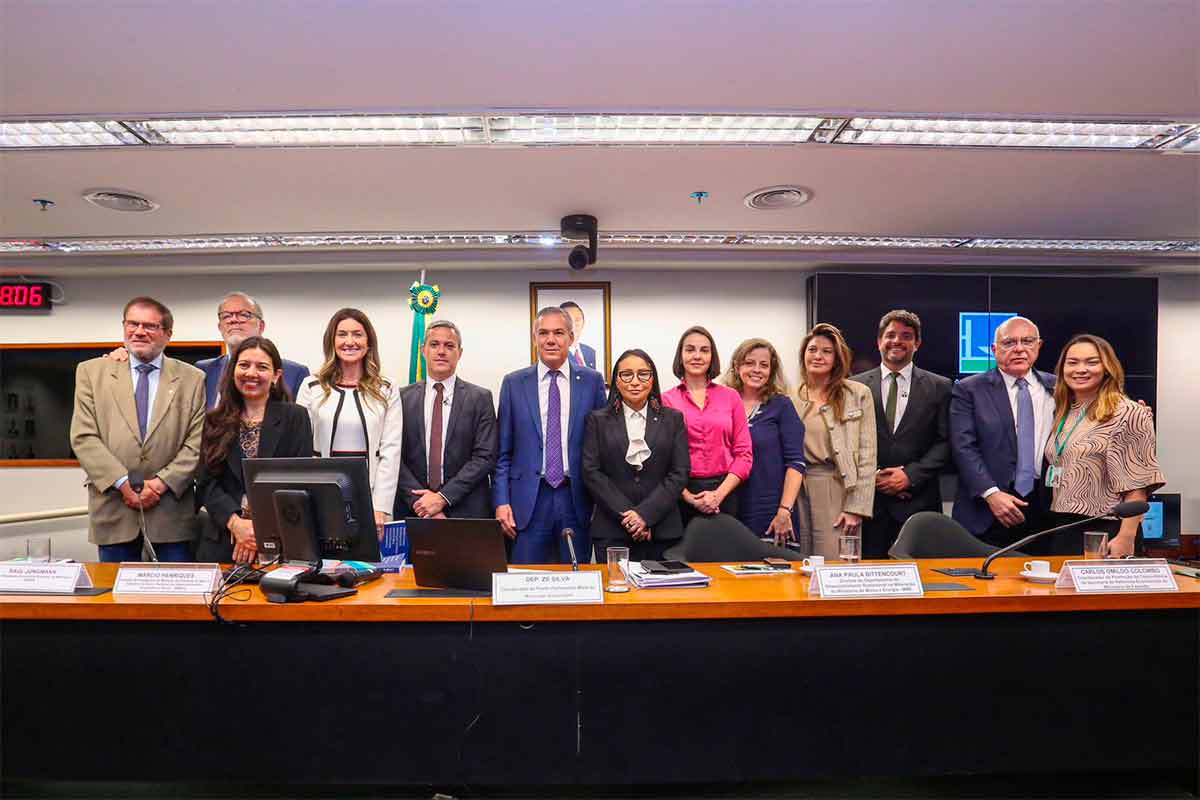 (Photo: Disclosure) The special committee of the Chamber of Deputies that monitors the energy transition initiative discussed the need for public policies for critical and strategic minerals in the country and the challenges of production in a seminar this Thursday (11). And market. Raul Jungmann, president of IBRAMS (Brazilian Mining Institute), argued: “Important minerals are a passport to the future and we cannot miss this opportunity.”
(Photo: Disclosure) The special committee of the Chamber of Deputies that monitors the energy transition initiative discussed the need for public policies for critical and strategic minerals in the country and the challenges of production in a seminar this Thursday (11). And market. Raul Jungmann, president of IBRAMS (Brazilian Mining Institute), argued: “Important minerals are a passport to the future and we cannot miss this opportunity.”Ligia Pinto, vice president of Sigma Lithium, presented perspectives on the lithium market and showed how the company is positioning Brazil as a leader in the sector. Sigma is today the fourth largest lithium producer in the world (it is the sixth largest when the list includes extraction in salt pans), with 270 thousand tons/year of lithium concentrate for batteries. In 2025, with the expansion of integrated mining and processing activities, it will reach 520 thousand tons/year. Next year, capacity will be 770 thousand tons per year, and processing will continue, entering the chemical chain, which adds even more value to the product.
This expansion will make the company even more competitive, as the increase in production scale will reduce operating costs, which are already low at Sigma, explained the executive. Ligia extracted from the parliamentarians, businesspeople and government technicians participating in the debate a comparison with other companies, highlighting Sigma's advantage due to its management model. “Sigma has a low cost, which shows its viability even if the market price of lithium falls by 85%. We are very fiscally responsible, we are able to act in a unique way in the market in this situation and we face falling prices with the aim of reaching a scale that makes us even stronger. Costs reduce with expansion. Furthermore, we will double jobs, which is very desirable and important for the Jaquitinhonha Valley”, he said.
In this highly competitive market, Ligia also highlighted that Sigma's difference is its production method, which, with the best ESG practices, does not use harmful chemicals, drinking water or dirty energy, is zero carbon and does not have a tailings dam. “It is a relevant and strong product from a Brazilian company,” he said. “We are no longer a country that offers to sell raw ore. We are exporters of green technology products. That’s what makes us unique,” he said.
Ibram commissioned a study from the Mineral Technology Center (CTEM) to support the formulation of a policy for critical and strategic minerals. At the seminar, the results were presented by researcher Lucia Helena Xavier, co-author of the work. It presents proposals so that the Brazilian State, independently of governments, can structure this policy. At a time when the world is discussing the transition to a low-carbon economy, it is important that Brazil creates strategic plans and policies so that this mining sector reaches zero-carbon targets by 2050.
